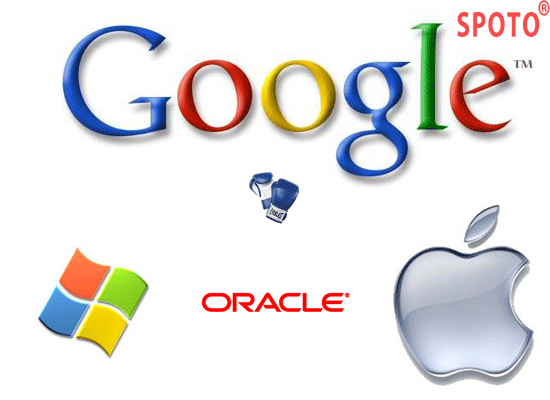Recently, Microsoft and Oracle announced an agreement to enable their cloud computing services to work together by establishing a high-speed connection between the two data centers. According to Reuters, the high-speed connection between the cloud computing business data centers will begin in the eastern United States, and the next step will be extended to other regions.
On June 5, Microsoft and Oracle announced a cloud interoperability partnership that enables customers to migrate and run mission-critical enterprise workloads across Microsoft Azure and Oracle Cloud. Enterprises can now seamlessly connect Azure services such as Analytics and AI to the Oracle cloud, run a portion of the workload in Azure, and run another part of the same workload in the Oracle cloud. An Oracle architect said on the social platform: "This is definitely good news for enterprise users."
According to a public statement issued by both parties on the official website: This partnership provides a highly optimized, best-in-class cloud experience. All in all, Azure and Oracle Cloud provide customers with a one-stop shop for all the cloud services and applications needed for the entire business.
Seamlessly improve and improve migration by connecting Azure and Oracle Cloud through network and identity interoperability. This partnership provides a direct, fast, and a highly reliable network connection between the two clouds while continuing to provide customer service and support that companies expect from both companies. In addition to the interoperability of legacy software, the collaboration supports innovative solutions such as running Oracle E-Business Suite or Oracle JD Edwards on Azure.
“As the preferred cloud platform for the enterprise, more than 95% of the Fortune 500 companies use Azure, and we are always focused on helping our customers thrive in the digital transformation journey,” said Microsoft's Executive Vice President of Cloud Computing and Artificial Intelligence (AI) According to Scott Guthrie, President, "With Oracle's corporate expertise, this alliance is a natural choice for us because we help our mutual customers accelerate the migration of enterprise applications and databases to the public cloud."
"Oracle Cloud provides a complete set of integrated applications for sales, service, marketing, human resources, finance, supply chain and manufacturing, as well as a highly automated and secure 2nd generation infrastructure with Oracle autonomous databases," Don Executive Vice President of Oracle "For decades, Oracle and Microsoft have been serving enterprise customers," Johnson said. "With this partnership, our mutual customers can migrate their entire set of existing applications to the cloud without having to rebuild anything. Keep a lot of investment they have already made."
Due to this partnership, the following are new features worth noting:
Seamlessly connect Azure and Oracle Cloud, allowing customers to extend their local data center to two cloud platforms. This direct interconnection is available in Ashburn (North America) and Azure US East from the date of the collaboration and is planned to expand to other regions in the future.
Unified identity and access management to manage resources in Azure and Oracle Cloud through a unified single sign-on experience and automated user provisioning. Oracle applications can also use Azure Active Directory as an identity provider and conditional access in earlier previews.
Support for deploying custom applications and packaged Oracle applications (JD Edwards EnterpriseOne, E-Business Suite, PeopleSoft, Oracle Retail, Hyperion) on Azure and deploying Oracle Database (RAC, Exadata, autonomous database) in Oracle Cloud. The same Oracle application will also run on Azure through Oracle Database Authentication in the Oracle Cloud.
A collaborative support model that helps IT organizations deploy these new capabilities while enabling them to leverage existing customer support relationships and processes.
Oracle Database will continue to be certified to run Azure on a variety of operating systems, including Windows Server and Oracle Linux.
“As we hope to bring the omnichannel experience closer together and change the technology platform that supports the Gap Inc. brand, the collaboration between Oracle and Microsoft will make it easier for us to scale and deliver functionality across channels,” Gap Inc. Chief Information Officer Sally Gilligan said.
Ed Anderson, an analyst at Gartner, a US technology market research firm, said: "The alliance between Microsoft and Oracle is clearly a 'jab' for Amazon's cloud computing division. Oracle sees Amazon cloud It’s no secret that it’s the main competitor in the database market. There are still some unresolved issues about the deal, such as whether customers will face data transfer fees because they move a lot of information back and forth between services, but overall it’s good. Message."
It is understood that this is not the first cooperation between the two sides. As early as 2013, Microsoft and Oracle announced a partnership to run and deploy Oracle software on Windows Server Hyper-V and Windows Azure. As part of the partnership, Oracle will ensure and support the operation of Oracle software on Windows Server Hyper-V and Windows Azure, including Java, Oracle Database and Oracle WebLogic Server. Microsoft will also provide Java, Oracle Database and Oracle WebLogic Server for Windows Azure customers. At the same time, Oracle will bring Oracle Linux to Windows Azure customers.
Earlier, an industry expert said in an interview with InfoQ that the cloud computing industry is a winner-take-all market, with a subversive attitude to completely replace the current trillion-dollar traditional IT market. This is also the reason why many companies are willing to take huge risks of loss and will not hesitate to invest heavily in this market. However, this is destined to be a winner-take-all market, and the winner is likely to have only a single digit, as evidenced by the changes in the company's annual IaaS Magic Quadrant released by Gartner. In 2019, the integration of the cloud computing industry, mergers and acquisitions and even out of the situation should continue to be staged.

 Join Telegram Study Group ▷
Join Telegram Study Group ▷














